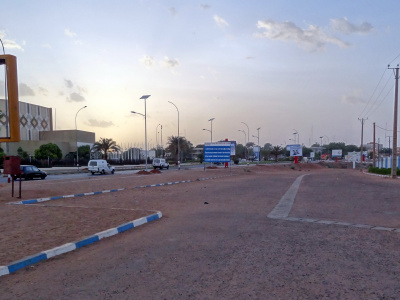
How do European Donors engage with emerging development partners?
How do Western development partners interact and engage with “emerging donors” on development issues? This article summarises the findings of a broader ECDPM research paper[1] on the issue.
Emerging economies play an increasingly important role on the global scene. This observation holds true for development related matters as well. Given the emphasis placed by the traditional development community on comprehensive, coordinated and effective development approaches, enhanced cooperation and coordination between traditional donors and emerging countries has been perceived as increasingly important. In light of this, ECDPM conducted a review of some European donor agencies’ strategies on engagement with South-South cooperation and emerging donors.[2] This article summarises the key findings of the broader paper.[3]
Who is most active?
Amongst the donors surveyed, France, Germany, the United Kingdom, and to some extent Portugal and Denmark, appear to be most active and systematic, having defined explicit strategies for engaging and currently conducting activities with emerging development partners. In short, size seems to matter when trying to engage with emerging economies on development matters. Historical relationships (e.g. Portugal and Brazil, India and the UK) also seem to be a factor, but to a lesser extent.
Amongst European Union (EU) donors, the UK’s Department for International Development (DfID) certainly stands out as having undertaken the most wide-ranging and sustained efforts to engage with emerging economies, having a number of Memorandums of Understandings (MoU) dedicated to development issues with several of them. In 2011 it created an “Emerging Powers team” in the agency’s Global Partnerships Department, in reflection of the organisation’s willingness to strengthen relationships with new development partners.
Dialogue on global public goods: a driving force, but different modalities
The rising importance of emerging economies in negotiations and future frameworks on Global Public Goods (GPGs) is a driving force behind many European donors’ efforts to engage with emerging economies and new development partners. For instance, traditional donors seek a greater engagement of emerging players on climate change and sustainable development agenda, as illustrated by the Fourth High Level Forum on Aid Effectiveness in Busan at the end of 2011, the Rio+20 Conference and follow-up, and the process towards the New Development Framework Post-2015. France, the UK and Germany explicitly aim at promoting the engagement of these countries in global governance mechanisms deemed important for international development efforts.
What differs is the way in which these strategic goals are pursued. DfID, for instance, funds dialogue activities and actively facilitates bilateral interactions between UK staff and Chinese counterparts, as well as engagement of Chinese officials in key global forums. Nevertheless, despite these ambitious goals, it does not fund projects in China, having stopped bilateral cooperation in 2011. France, on the other hand, has chosen to keep bilateral cooperation in emerging economies running as a way to symbolically demonstrate the viability of development models based on sustainable development principles[PO1] , hoping to influence these countries’ stances in climate negotiations.
Germany holds an approach fairly similar to that of France. Strong emphasis is placed on the need to create comprehensive structures and strategies that coherently cover the external activities of all different ministries. Thus, development cooperation forms one aspect of a wider ambition to strengthen the relations with emerging economies and better adapt German foreign policy to the new political landscape.[4]
Diverging institutional frameworks
The way dialogue and cooperation between traditional and emerging development partners is institutionalised differs widely. The shape of this institutionalisation is highly dependent on the architecture of development policy making in the traditional donor country. DfID for example tends to privilege MoUs addressing development issues specifically. France, on the other hand, signs broader cooperation agreements, favouring “whole of government” endeavours, with several ministries, institutes and agencies mobilised on specific issues, the Agence Française de Développement (AFD) being only one of many implementing agencies.
Germany has established Framework Agreements with all of its partners, including the emerging economies, and all cooperative activities are governed by these agreements. Portugal, which focuses most of its bilateral assistance on Portuguese-speaking countries, seems to choose the Comunidade dos Países de Língua Portuguesa (Community of Portuguese Speaking States, CPLP) as an institutional anchor for the development of triangular cooperation and dialogue with Brazil, with, reportedly, mixed results.
A tailored approach
Efforts to engage with emerging development partners are relatively new for European donor agencies. The contours of engagement strategies are just appearing, with different shapes and varying degrees of success. This research suggests that there is no universal approach to engaging with emerging donors – but rather different patterns, characterised by the domestic context European donor agencies operate in and the objectives they pursue.
Footnotes
- Rosengren, A., Roquefeuil, Q. de, Bilal, S. 2013. How do European donors engage with emerging development partners? ECDPM Discussion Paper 150. Maastricht: ECDPM. The study was commissioned and funded by the Swiss Agency for Development and Cooperation (SDC). www.ecdpm.org/dp150
- The countries surveyed were Austria, Belgium, Denmark, Finland, France, Germany, The Netherlands, Norway, Portugal, Sweden, and the United Kingdom (UK). These countries were selected because of their relative importance in development cooperation or based on indications that they may be more active in engaging with emerging donors, for strategic reasons or because of their geographical focus and/or historical ties with countries where new development partners are active (e.g. Belgium and Portugal).
- See Discussion Paper 150, www.ecdpm.org/dp150
- See also the article by Ursula Müller in this issue of GREAT insights.
Anna Rosengren and Quentin de Roquefeuil are Policy Officers at ECDPM.
Sanoussi Bilal is Head of the Economic Transformation Programme at ECDPM.
This article was published in GREAT Insights Volume 3, Issue 4 (April 2014).



